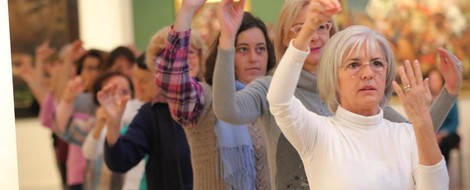Your podcast discovery platform
Curious minds select the most fascinating podcasts from around the world. Discover hand-piqd audio recommendations on your favorite topics.

piqer for: Global finds Health and Sanity Doing Good
Bangalore-based Rashmi Vasudeva's journalism has appeared in many Indian and international publications over the past decade. A features writer with over nine years of experience heading a health and fitness supplement in a mainstream Indian newspaper, her niche areas include health, wellness, fitness, food, nutrition and Indian classical Arts.
Her articles have appeared in various publications including Mint-Wall Street Journal, The Hindu, Deccan Herald (mainstream South Indian newspaper), Smart Life (Health magazine from the Malayala Manorama Group of publications), YourStory (India's media technology platform for entrepreneurs), Avantika (a noir arts and theatre magazine), ZDF (a German public broadcasting company) and others.
In 2006, she was awarded the British Print-Chevening scholarship to pursue a short-term course in new-age journalism at the University of Westminster, U.K. With a double Masters in Globalisation and Media Studies from Aarhus Universitet (Denmark), University of Amsterdam and Swansea University in Wales, U.K., she has also dabbled in academics, travel writing and socio-cultural studies. Mother to a frisky toddler, she hums 'wheels on the bus' while working and keeps a beady eye on the aforementioned toddler's antics.
Encore For The Parkinson's Dancers!
It is hard to find a disease that’s more debilitating emotionally than Parkinson’s. The brain disorder that today affects more than 6 million people worldwide is all about slow degeneration, with symptoms sneaking up on the patient. One of its early signs is uncontrollable shaking and tremors. Other indications are slow movements, loss of balance, and changes in speech and gait. And there is no cure yet.
One can imagine the emotional trauma a slow-creeping disease, which inflicts this kind of damage on the brain and body, can cause. Which is why this heart-warming initiative in Italy needs to be talked about and perhaps implemented in other countries.
A project called ‘Dance Well’ is using dance as a therapy and integration technique for Parkinson’s patients. The participants, largely those suffering from the disorder, as well as some visitors and immigrants, recently performed on stage at one of the exhibition halls of Museo Civico near Vicenza.
The 70-strong patient–dancers take dance lessons in the museum’s exhibition halls every Monday and Friday, where their teacher encourages them to draw inspiration from the paintings around them. As the story describes, some seek their own spaces while others reach out for physical contact — both of which can be intensely therapeutic. Daniele Volpe, director of the Neuro-Rehabilitation Department at Vicenza explains to the author that contemporary dance inspired by art (what the workshops are doing) stimulates cerebral areas such as the limbic system connected to our emotions and creativity.
Participants whom the author has spoken to call these dance lessons a ‘life-changer’ that have greatly increased their self-esteem and steered them away from the stigma attached to the disease.
Scientific research has often thrown up strong evidence of dance being useful in dealing with degenerative diseases. As Volpe says, it is crucial to look beyond conventional means to find new ways of treatment. This seems to be great start.
